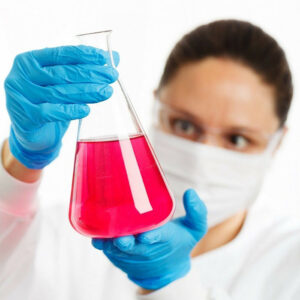
MOST OF US learn a little about the pH scale in our science classes as teenagers, but what does that have to do with oral health? A lot, actually, which is why we’re going to take this opportunity to give our patients a quick refresher on the basics of pH.
What Is pH and What Does It Mean?
The pH scale measures how acidic or basic something is, from 1 to 14. A pH of 7 is neutral. Anything lower is increasingly acidic and anything higher is increasingly basic. For example, stomach acid has a pH of between 1.5 and 2.5, orange juice ranges from 3.3 to 4.2, plain water is neutral at 7, soap tends to be between 9 and 10, and bleach is strongly basic at 12.5. So what about the human mouth?
The pH of Our Mouths
Different parts of us have different ideal pH levels. Healthy skin should be mildly acidic (around 5.5) while blood should be slightly basic (7.4). For healthy teeth and gums, our mouths should be as close to neutral as possible. Unhealthy mouths tend to be more acidic, which is very harmful to tooth enamel. Even though enamel is the hardest substance in the human body, it’s very vulnerable to acid erosion. It will begin to erode at a pH of just 5.5!
How Mouths Become Acidic
Our teeth can be exposed to acid in many ways. When we eat or drink something sour or tart, that is actually the taste of the acid. Soda is also highly acidic (the bubbles come from carbonic acid). Acid exposure can also come indirectly when we consume sugars and starches. Harmful oral bacteria gobble up the leftovers stuck between our teeth after a meal, a snack, or a sip of soda, and they produce acid as waste. Vomiting or acid reflux are other ways acid can reach the teeth.
Saliva: Our Natural Defense Mechanism
So how do we fight back against all those acid attacks? First, we have the built-in defense of saliva. Saliva washes away food particles and neutralizes our oral pH. This essential job is why dry mouth can be so dangerous for oral health. Without saliva, our teeth are more vulnerable.
We should do as much as we can to help our saliva do its job. It’s a bad idea to sip on sugary/acidic drinks or eat a lot of snacks, because every time we eat, our saliva has to start neutralizing our oral pH all over again, and the acid has more time to erode our enamel. If you’re going to indulge in occasional treats, keep them to mealtimes.
Cut Down on Acidic Foods
Another way we can help our saliva protect our teeth is by cutting down on the acidic foods and drinks and trading them for more alkaline ones. That means eating more fruits and veggies and fewer breads, dairy products, and meats. We should especially minimize the amount of soda we drink and sugary treats we eat.
We’re All Part of the Fight Against Enamel Erosion!
Following all these tips doesn’t make it any less important to brush twice a day for two full minutes, floss daily, and keep up with your regular dental appointments! If you want to learn more about how to keep your tooth enamel strong, we’d love to answer your questions. We want all of our patients to have the tools to keep their teeth healthy for a lifetime!


 Website Powered by Sesame 24-7™
Website Powered by Sesame 24-7™
